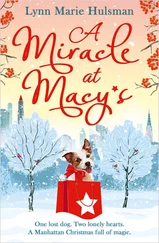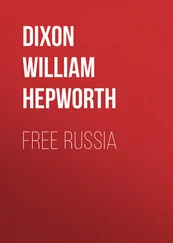Nikolai Nekrasov - Who Can Be Happy and Free in Russia?
Здесь есть возможность читать онлайн «Nikolai Nekrasov - Who Can Be Happy and Free in Russia?» весь текст электронной книги совершенно бесплатно (целиком полную версию без сокращений). В некоторых случаях можно слушать аудио, скачать через торрент в формате fb2 и присутствует краткое содержание. Год выпуска: 2005, Жанр: Поэзия, на английском языке. Описание произведения, (предисловие) а так же отзывы посетителей доступны на портале библиотеки ЛибКат.
- Название:Who Can Be Happy and Free in Russia?
- Автор:
- Жанр:
- Год:2005
- ISBN:нет данных
- Рейтинг книги:3 / 5. Голосов: 1
-
Избранное:Добавить в избранное
- Отзывы:
-
Ваша оценка:
- 60
- 1
- 2
- 3
- 4
- 5
Who Can Be Happy and Free in Russia?: краткое содержание, описание и аннотация
Предлагаем к чтению аннотацию, описание, краткое содержание или предисловие (зависит от того, что написал сам автор книги «Who Can Be Happy and Free in Russia?»). Если вы не нашли необходимую информацию о книге — напишите в комментариях, мы постараемся отыскать её.
Who Can Be Happy and Free in Russia? — читать онлайн бесплатно полную книгу (весь текст) целиком
Ниже представлен текст книги, разбитый по страницам. Система сохранения места последней прочитанной страницы, позволяет с удобством читать онлайн бесплатно книгу «Who Can Be Happy and Free in Russia?», без необходимости каждый раз заново искать на чём Вы остановились. Поставьте закладку, и сможете в любой момент перейти на страницу, на которой закончили чтение.
Интервал:
Закладка:
A lackey comes flying
Along, with a napkin;
He's lame—the poor man!
"Please, the luncheon is served."
And then the procession,
The three little Barins,
The wet-nurse, the dry-nurse, 240
The ancient retainers,
The woolly white poodles,
Moves onward to lunch.
The peasants stand watching;
From one of the boats
Comes an outburst of music
To greet the Pomyéshchick.
The table is shining
All dazzlingly white
On the bank of the river. 250
The strangers, astonished,
Draw near to old Vlásuchka;
"Pray, little Uncle,"
They say, "what's the meaning
Of all these strange doings?
And who is that curious
Old man?"
"Our Pomyéshchick,
The great Prince Yutiátin."
"But why is he fussing 260
About in that manner?
For things are all changed now,
And he seems to think
They are still as of old.
The hay is quite dry,
Yet he told you to dry it!"
"But funnier still
That the hay and the hayfields
Are not his at all."
"Then whose are they?" 270
"The Commune's."
"Then why is he poking
His nose into matters
Which do not concern him?
For are you not free?"
"Why, yes, by God's mercy
The order is changed now
For us as for others;
But ours is a special case."
"Tell us about it." 280
The old man lay down
At the foot of the haystack
And answered them—nothing.
The peasants producing
The magic white napkin
Sit down and say softly,
"O napkin enchanted,
Give food to the peasants!"
The napkin unfolds,
And two hands, which come floating
From no one sees where, 291
Place a bucket of vodka,
A large pile of bread
On the magic white napkin,
And dwindle away….
The peasants, still wishing
To question old Vlásuchka,
Wisely present him
A cupful of vodka:
"Now come, little Uncle, 300
Be gracious to strangers,
And tell us your story."
"There's nothing to tell you.
You haven't told me yet
Who you are and whence
You have journeyed to these parts,
And whither you go."
"We will not be surly
Like you. We will tell you.
We've come a great distance, 310
And seek to discover
A thing of importance.
A trouble torments us,
It draws us away
From our work, from our homes,
From the love of our food…."
The peasants then tell him
About their chance meeting,
Their argument, quarrel,
Their vow, and decision; 320
Of how they had sought
In the Government "Tight-Squeeze"
And Government "Shot-Strewn"
The man who, in Russia,
Is happy and free….
Old Vlásuchka listens,
Observing them keenly.
"I see," he remarks,
When the story is finished,
"I see you are very 330
Peculiar people.
We're said to be strange here,
But you are still stranger."
"Well, drink some more vodka
And tell us your tale."
And when by the vodka
His tongue becomes loosened,
Old Vlásuchka tells them
The following story.
I
THE DIE-HARD
"The great prince, Yutiátin,
The ancient Pomyéshchick,
Is very eccentric.
His wealth is untold,
And his titles exalted,
His family ranks
With the first in the Empire.
The whole of his life
He has spent in amusement,
Has known no control 10
Save his own will and pleasure.
When we were set free
He refused to believe it:
'They lie! the low scoundrels!'
There came the posrédnik
And Chief of Police,
But he would not admit them,
He ordered them out
And went on as before,
And only became 20
Full of hate and suspicion:
'Bow low, or I'll flog you
To death, without mercy!'
The Governor himself came
To try to explain things,
And long they disputed
And argued together;
The furious voice
Of the prince was heard raging
All over the house, 30
And he got so excited
That on the same evening
A stroke fell upon him:
His left side went dead,
Black as earth, so they tell us,
And all over nothing!
It wasn't his pocket
That pinched, but his pride
That was touched and enraged him.
He lost but a mite 40
And would never have missed it."
"Ah, that's what it means, friends,
To be a Pomyéshchick,
The habit gets into
The blood," says Mitródor,
"And not the Pomyéshchick's
Alone, for the habit
Is strong in the peasant
As well," old Pakhóm said.
"I once on suspicion 50
Was put into prison,
And met there a peasant
Called Sédor, a strange man,
Arrested for horse-stealing,
If I remember;
And he from the prison
Would send to the Barin
His taxes. (The prisoner's
Income is scanty,
He gets what he begs 60
Or a trifle for working.)
The others all laughed at him;
'Why should you send them
And you off for life
To hard labour?' they asked him.
But he only said,
'All the same … it is better.'"
"Well, now, little Uncle,
Go on with the story."
"A mite is a small thing, 70
Except when it happens
To be in the eye!
The Pomyéshchick lay senseless,
And many were sure
That he'd never recover.
His children were sent for,
Those black-moustached footguards
(You saw them just now
With their wives, the fine ladies),
The eldest of them 80
Was to settle all matters
Concerning his father.
He called the posrédnik
To draw up the papers
And sign the agreement,
When suddenly—there
Stands the old man before them!
He springs on them straight
Like a wounded old tiger,
He bellows like thunder. 90
It was but a short time
Ago, and it happened
That I was then Elder,
And chanced to have entered
The house on some errand,
And I heard myself
How he cursed the Pomyéshchicks;
The words that he spoke
I have never forgotten:
'The Jews are reproached 100
For betraying their Master;
But what are you doing?
The rights of the nobles
By centuries sanctioned
You fling to the beggars!'
He said to his sons,
'Oh, you dastardly cowards!
My children no longer!
It is for small reptiles—
The pope's crawling breed— 110
To take bribes from vile traitors,
To purchase base peasants,
And they may be pardoned!
Интервал:
Закладка:
Похожие книги на «Who Can Be Happy and Free in Russia?»
Представляем Вашему вниманию похожие книги на «Who Can Be Happy and Free in Russia?» списком для выбора. Мы отобрали схожую по названию и смыслу литературу в надежде предоставить читателям больше вариантов отыскать новые, интересные, ещё непрочитанные произведения.
Обсуждение, отзывы о книге «Who Can Be Happy and Free in Russia?» и просто собственные мнения читателей. Оставьте ваши комментарии, напишите, что Вы думаете о произведении, его смысле или главных героях. Укажите что конкретно понравилось, а что нет, и почему Вы так считаете.











